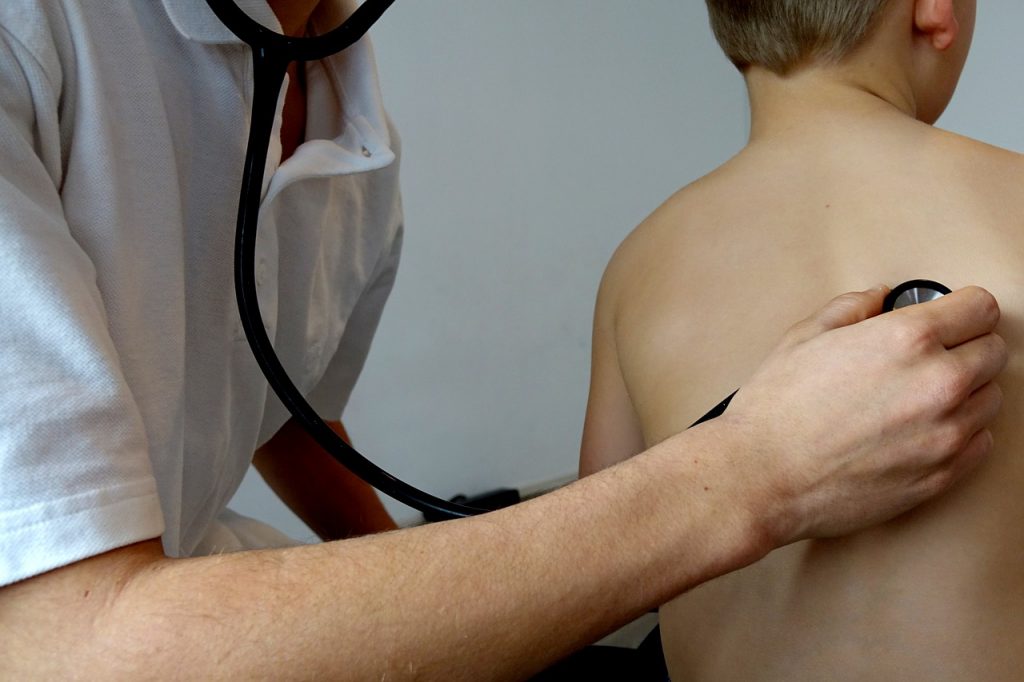Lead researcher
- Alastair Hay, Professor (University of Bristol)

About the project
The majority of current evidence regarding how long children’s respiratory infections last has been drawn from studies of children attending their GP in primary care. However, illnesses presenting to primary care represent only the tip of the ‘illness iceberg’, with most of the burden of respiratory infections lying in the community, where we have little understanding of how commonly they occur, their associated bacteria and viruses, their duration, and the proportion of illnesses resulting in health service consultations.
Given their frequency, an enhanced knowledge of children’s respiratory infections in the community could have wide-ranging benefits, including: (i) an improved understanding of the factors leading to consultations; (ii) the development of interventions to support better use of the NHS by parents; (iii) better healthcare resource planning; and (iv) knowledge regarding the likely costs and benefits of new vaccines. There is also potential for the provision of locally relevant, real-time community surveillance information to reduce clinical uncertainty and support parent consulting decisions.
Project aim
To begin to address the evidence gap concerning children’s respiratory infections in the community.
What we did
We used the expertise of a multidisciplinary team to:
- conduct a systematic review of real-time syndromic/microbiological interventions to investigate their effectiveness in changing antimicrobial prescribing
- assess the feasibility of community syndromic and microbiological surveillance of children’s respiratory tract infection, including measures of symptom severity and duration (online) and microbiological sample collection, both to inform the design of a future full-scale cohort study
- qualitatively assess parent and clinicians’ attitudes to a future possible real-time respiratory infection surveillance system
- develop and evaluate a prototype intervention of real-time RTI surveillance information for both parents and clinicians.
What we found and why that’s important
- The systematic review found promising evidence that early real time systems can influence the use of both antibiotic and antiviral treatment.
- Interviews with mothers and children indicated study acceptability.
- Mothers and clinicians (18 GPs and 3 nurse practitioners) were interviewed about the intervention potential for syndromic and microbiological infection surveillance. Most parents felt they would use the information, while clinicians’ responses were more mixed. Symptom duration information was welcomed by all interview participants as particularly useful. Many felt symptom durations were longer than expected, which gave potential for extending time before consulting (parents) and enhancing patient explanation (clinicians). Some potential for intended outcomes (reduced diagnostic uncertainty in clinicians, and increased confidence in home management of non-serious RTIs in parents) was elicited, as well as identifying barriers and intervention development needs. Parents wanted the intervention to include advice on RTI symptoms and management. Clinicians expressed a preference for information concerning risk/threat to their patients. Both clinician and parent interviews elicited positive attitudes to sharing the information within a consultation.
- Results of the intervention development are due to be published later in 2018.
Next steps
We plan to develop the algorithms needed to underpin real-time surveillance systems.
Funder
National Institute for Health Research (NIHR) Health Protection Research Unit in Evaluation of Interventions
Project dates
January 2015 to December 2017.
Publications
Hay, A, Anderson, EC, Ingle, S, Beck, C & Hollingworth, W, 2019, ‘Respiratory Tract Infections in Children in the Community: Prospective Online Inception Cohort Study’. Annals of Family Medicine, vol 17., pp. 14-22
Schneider, A, Cabral, C, Herd, N, Hay, A, Kesten, J, Anderson, E, Lane, I, Beck, C & Michie, SF, 2019, ‘Reducing Primary Care Attendance Intentions for Pediatric Respiratory Tract Infections’. Annals of Family Medicine, vol 17., pp. 239-249
Anderson, EC, Kesten, J, Lane, I, Hay, A, Moss, T & Cabral, C, 2019, ‘Primary care clinicians’ views of paediatric respiratory infection surveillance information to inform clinical decision-making: a qualitative study’. BMJ Paediatrics Open .
Anderson, E, Ingle, S, Muir, P, Beck, C, Leeming, J, Kesten, J, Cabral, C & Hay, A, 2018, ‘Population-based paediatric respiratory infection surveillance: a prospective inception feasibility cohort study’. Pilot and Feasibility Studies, vol 4.
Lane I, Bryce A, Ingle SM, Hay AD. Does locally relevant, real-time infection epidemiological data improve clinician management and antimicrobial prescribing in primary care? A systematic review. Family Practice; 2018 Feb: cmy008. doi.org/10.1093/fampra/cmy008
Kesten JM, Anderson EC, Lane I, et al. Parent views on the content and potential impact of respiratory tract infection surveillance information: semistructured interviews to inform future research. BMJ Paediatrics Open 2017;1:e000036. doi:10.1136/bmjpo-2017-000036
Anderson, EC, Ingle, S, Muir, P, Beck, C, Finn, A, Leeming, J, Cabral, C, Kesten, J & Hay, AD. The community paediatric respiratory infection surveillance study protocol: a feasibility, prospective inception cohort study. BMJ Open 2016;6:e013017. doi: 10.1136/bmjopen-2016-013017
Research team
- Alastair Hay, Professor (University of Bristol)
- Emma Anderson, Dr (University of Bristol)
- Charles Beck, Dr (Public Health England)
- Christie Cabral, Dr (University of Bristol)
- Joanna Kesten, Dr (University of Bristol)
- Isabel Lane, Dr (University of Bristol)
- Susan Michie, Professor (University College London)
- Annegret Schneider, Dr (University College London)
- Hannah Thornton, Dr (University of Bristol)